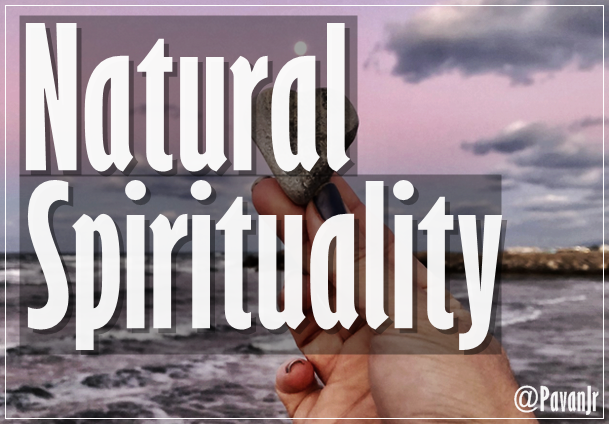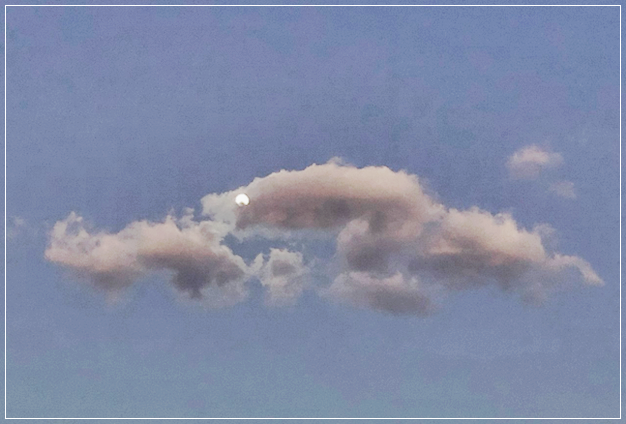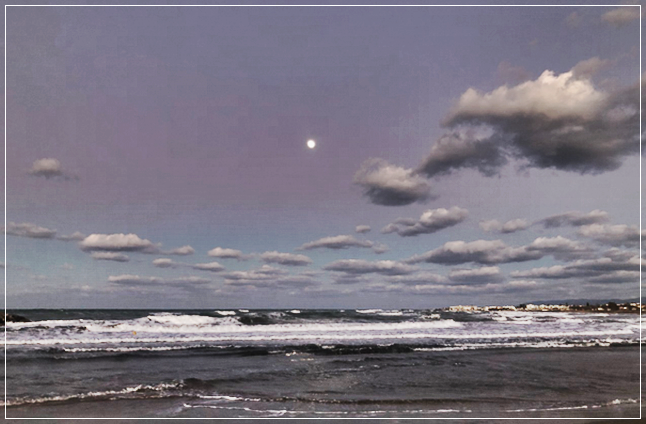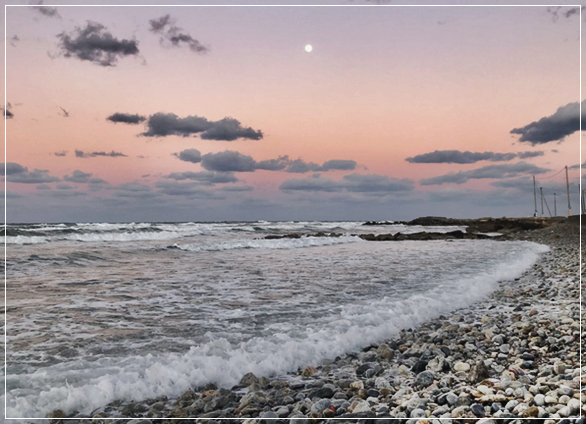This post is written in two languages, the first part in Spanish and the second in English
Este post está escrito en dos idiomas, la primera parte en español y la segunda en inglés

ESP |

La experiencia espiritual se produce cuando uno se permite encontrar los enigmas ocultos en la vida cotidiana y ordinaria.
En esta práctica, el encuentro con el misterio de la propia vida exige un sentido y una verdad sobre ella, de modo que en esta búsqueda puede aparecer una luz, a veces tenue, a veces muy intensa, que permite percibir una nueva dimensión, una dimensión desconocida, algunos dirían misteriosa, nosotros diríamos, que se reconoce como fuente de armonía, de paz, de belleza, de bondad y de amor. En ambos casos, se percibe como una invitación y una oportunidad para entrar. Y los que se atreven a hacerlo descubren que se abren ante ellos vías de exploración inimaginables. Caminos que algunos prefieren considerar como espejismos, nacidos de las ilusiones o de los miedos, y que por lo tanto nunca serán recorridos.
Los que se consideran en territorio inexplorado lo ven como un nuevo reto para el desarrollo del conocimiento y se niegan a abrirse a otras posibilidades. También hay quienes sienten que se encuentran con algo más allá de ellos mismos; incluso pueden sentir que se encuentran con Alguien en la alteridad radical (trascendencia), que se les hace presente en la interioridad de la vida humana (inmanencia) y que hace posibles nuevos caminos de sentido.
Esta es la situación y las opiniones expresadas en la literatura contemporánea sobre el tema. No puedo ser exhaustivo, ni pretendo serlo; intento dar algunos ejemplos concretos de los caminos que se están descubriendo actualmente y así posicionar la propuesta que sigue.

La espiritualidad que habita en la religión
Para muchos, para los que cultivan la fe en Dios, sigue siendo cierto que este cultivo es inherente a la espiritualidad que da sentido a la vida. El misterio aquí es la realidad de Dios. Por eso escribimos la palabra "misterio" en mayúsculas, para distinguirla del sentido vulgar o filosófico que lo entiende como algo ignorado, inaccesible e incomprensible, y en singular, para distinguirla de lo que en la historia religiosa se llama "misterios" en relación con las religiones místicas, o cuando en el cristianismo se habla de "misterios" o sacramentos.
La espiritualidad aparece así como una dinámica de fe, cultivada en el interior y expresada en el servicio y el amor, que da vitalidad al sentido de la vida, que se desarrollará en la segunda parte de este artículo.
Ahora se puede ver que las iglesias cristianas insisten en que el misticismo cristiano es compatible con el misticismo de otras religiones y con todos los movimientos que se ocupan del mundo interior fuera de la religión, lo que lleva a entender la religiosidad como espiritualidad. No faltan quienes, al revelar esto, argumentan, ofreciendo dimensiones de la diferencia de la espiritualidad religiosa en relación con otras ofertas espirituales. También hay voces que se oponen a utilizar el mismo término "espiritualidad" para las dinámicas teístas y no teístas.

Es irrelevante las religiones o iglesias al que perteneces, si de verdad cultivamos este tipo de espiritualidad. Además, para algunos de estos movimientos, aparecen como factores contingentes para el intercambio de significados y valores, y el factor religioso se ve incluso como un factor que lleva a la exclusión, porque la pertenencia a una tradición religiosa, a una comunidad, marca fronteras, hay un interior y un exterior. ¿Está cambiando el terreno? ¿Se trata de un fenómeno real de migración?.
Este fenómeno de la migración puede definirse también como un movimiento recíproco de lo que podríamos describir como una transición de lo "desconocido" al misterio, en una dinámica que abre la posibilidad o incluso la búsqueda de este misterio, vislumbrado en la expresión de Dios en la historia.
Espiritualidad sin Dios.
Podemos ver que estas proposiciones provienen de dos tipos de contextos: de personas que tienen una experiencia positiva de pertenencia a una tradición religiosa, en este caso el cristianismo en la Iglesia católica, y de escritores científicos cuya vida ordinaria es ajena a la religión y que participan en un contexto en el que se cultiva la ciencia experimental.
En esta nueva era, la espiritualidad se desarrollará en una cultura sin religión, donde las creencias han desaparecido y queda espacio para la fe, donde el secularismo ha purgado la vida social de símbolos, historias y metáforas desarrolladas anteriormente en las sociedades preindustriales. De esta manera, será posible mirar las cosas de una manera nueva para ver, apreciar y discernir las cuestiones de la vida humana, un espíritu que nos llama a distinguir claramente entre la necesidad de la vida y su dimensión de lo absoluto.
Además, es posible caminar bajo un cielo sin fe sin renunciar a ella. Porque mientras que en las sociedades preindustriales la fe y la creencia eran conceptos que iban de la mano, un vínculo irrompible que parecía imposible de romper, ahora vemos que es un vínculo que no se podía romper en esa cultura y que ya no lo es en la nuestra. La noción de fe presupone una "novedad" que no es conceptual ni simbólica, sino representativa y que crea una certeza radical. La certeza, que no tiene posibilidad de ser representada, no tiene posibilidad de ser articulada en conceptos.

Las experiencias espirituales no requieren creencias.
Parecen surgir a través de un proceso de programación colectiva creado en las sociedades preindustriales. Hay varias explicaciones de por qué a muchas personas les cuesta desprenderse de ellas, pero en ningún caso tienen que ver con la autenticidad espiritual.
Se necesita la compañía de maestros para recorrer este camino, al igual que ocurre con otros caminos espirituales similares, como la música, la poesía y el arte en general. Pero debemos estar atentos para que esta empresa no se convierta en un medio para crear nuevas creencias. Aquí sólo tienen cabida las historias que nos preparan para el "gran silencio", un atrio que da la entrada hacìa esa realidad donde la vida cotidiana puede ocupar su lugar. Hacerle un hueco puede crear expresiones de ética y devoción. La primera consiste en luchar por el bien de los demás sin buscar el beneficio propio, mientras que la segunda implica una nueva forma de "conocer" la realidad, radicalmente abierta a la búsqueda de la dimensión absoluta de la realidad.
Todo ser humano es un ser espiritual, por lo que toda vida humana está abierta a la formación de un proyecto de vida espiritual. Este parece ser el punto central de la propuesta del autor, y la discusión sobre la existencia o inexistencia de Dios y/o la continuación o supresión de la religión pasa a un segundo plano.
Hasta aquí, dos ejemplos de espiritualidad que vive en "lo que es", en la que no hay lugar para Dios, pero que sitúa la espiritualidad en el ámbito de lo absoluto incondicional, en la que la espiritualidad requiere de alguna manera una actitud ante la vida que es difícil de calificar como actitud natural.

La felicidad, la prosperidad y el sentido se encuentran cerca de los ideales encarnados del bienestar humano que están vinculados a un propósito que va más allá de mis deseos personales y que abarca a los seres humanos presentes y futuros, quizás a todos los seres sintientes. Quizá haya lugares de culto donde se reúnan personas dedicadas a esta forma de vida para afirmarla. Esto es una buena noticia. Y es una espiritualidad naturalizada. Amén.
La espiritualidad se convierte en una forma de vida, abierta a los ideales del bien, que abarca a todos los seres vivos, especialmente a las personas de todos los tiempos. Y este modo de vida debe ser apoyado por una comunidad humana que comparta los mismos ideales y se haya embarcado en la misma aventura. Sin referencia a Dios, en eso consiste el naturalismo.
Algunos filósofos han reconocido que existen lagunas en la ciencia, lo que les lleva a criticar el materialismo físico y a buscar respuestas que amplíen los supuestos naturalistas. La teleología es necesaria para explicar los agujeros de la ciencia.
Albert Einstein escribió que "el misterio es lo más hermoso que he conocido". Y para desarrollar el sentido del misterio, necesitamos cultivar otras dimensiones y otras racionalidades, no sólo la racionalidad científica o la racionalidad filosófica, cuando simplemente nos atenemos a los límites del conocimiento que hemos establecido.
Creo que la espiritualidad naturalizada, tal y como se expresa aquí, es un paso positivo dentro de la tradición naturalista porque proporciona un lugar de encuentro y, por tanto, contrasta con otras expresiones de espiritualidad que aparecen en el paisaje de la sociedad secularizada actual. Los buscadores de estas sociedades podrán realizar su propia peregrinación para abrirse a la experiencia del misterio y descubrir, en las diversas formas de vida descritas por las tradiciones espirituales existentes, experiencias de sentido que abren grandes cotas de realización humana.
Con amor, Johnny

ENG |

Spiritual experience occurs when one allows oneself to encounter the riddles hidden in ordinary, everyday life.
In this practice, the encounter with the mystery of one's own life demands a meaning and a truth about it, so that in this search a light may appear, sometimes faint, sometimes very intense, which allows us to perceive a new dimension, an unknown dimension, some would say mysterious, we would say, that is recognized as a source of harmony, peace, beauty, goodness and mastery. In both cases, it is perceived as an invitation and an opportunity to enter. And those who dare to do so discover that unimaginable avenues of exploration open up before them. Roads that some prefer to consider as mirages, born of illusions or fears, and that therefore will never be traveled.
Those who consider themselves in unexplored territory see it as a new challenge for the development of knowledge and refuse to open up to other possibilities. There are also those who feel that they meet something beyond themselves; they may even feel that they meet Someone in radical otherness (trascendencia), that is present in the interiority of human life (immanence) and that makes new paths of meaning possible.
This is the situation and the opinions expressed in contemporary literature on the subject. I cannot be exhaustive, nor do I claim to be; I intend to give some concrete examples of the paths that are currently being discovered in order to position the proposal below.

The spirituality that dwells in religion
For many, for those who cultivate faith in God, it remains true that this cultivation is inherent in the spirituality that gives meaning to life. The mystery here is the reality of God. That is why we write the word "mystery" in capital letters, to distinguish it from the vulgar or philosophical sense, which understands it as something ignored, inaccessible and incomprehensible, and in the singular, to distinguish it from what in religious history is called "mysteries" in relation to mystical religions, or when in Christianity we speak of "mysteries" or sacraments.
Spirituality thus appears as a dynamic of faith, cultivated within and expressed in service and love, which gives vitality to the meaning of life, which will be developed in the second part of this article.
It can now be seen that Christian churches insist that Christian mysticism is compatible with the mysticism of other religions and with all movements that deal with the inner world outside of religion, which leads to understand religiosity as spirituality. There is no lack of those who, in revealing this, argue, offering dimensions of the difference of religious spirituality in relation to other spiritual offerings. There are also voices that oppose using the same term "spirituality" for theistic and non-theistic dynamics.

It is irrelevant which religions or churches you belong to, if you truly cultivate this type of spirituality. Moreover, for some of these movements, they appear as contingent factors for the exchange of meanings and values, and the religious factor is even seen as a factor that leads to exclusion, because belonging to a religious tradition, to a community, marks frontiers, there is an inside and an outside. Is the terrain changing, is it a real phenomenon of migration?
This phenomenon of migration can also be defined as a reciprocal movement of what we might describe as a transition from the "unknown" to the mystery, in a dynamic that opens up the possibility or even the search for this mystery, glimpsed in the expression of God in history.
Spirituality without God.
We can see that these propositions come from two types of contexts: from people who have a positive experience of belonging to a religious tradition, in this case, Christianity in the Catholic Church, and science writers whose ordinary life is alien to religion and who participate in a context in which experimental science is cultivated.
In this new era, spirituality will develop in a culture without religion, where belief has disappeared and there is room for faith, where secularism has purged social life of symbols and symbols that are not religious, stories and metaphors developed earlier in pre-industrial societies. In this way, it will be possible to look at things in a new way to see, appreciate and discern the issues of human life, a spirit that calls us to distinguish clearly between the necessity of life and its dimension of the absolute.
Moreover, it is possible to walk under a faithless sky without renouncing faith. For whereas in pre-industrial societies, faith and belief were concepts that went hand in hand, an unbreakable bond that seemed impossible to break, Now we see that it is a bond that could not be broken in that culture and is no longer broken in ours. The notion of faith presupposes a "novelty" that is neither conceptual nor symbolic, but representative and that creates a radical certainty. Certainty, which has no possibility of being represented, has no possibility of being articulated in concepts.
Spiritual experiences do not require beliefs.
They seem to arise through a process of collective programming created in pre-industrial societies. There are several explanations as to why many people find it difficult to let go of them, but in no case do they have to do with spiritual authenticity.
The company of teachers is needed to walk this path, as is the case with other similar spiritual paths, such as music, poetry and art in general. But we must be vigilant that this enterprise does not become a means to create new beliefs. Only stories that prepare us for the "great silence" have a place here, an atrium that gives the entrance to that reality where everyday life can take its place. Making room for it can create expressions of ethics and devotion. The first consists of fighting for the good of others without seeking one's own benefit, while the second implies a new way of "knowing" reality, radically open to the search for the absolute dimension of reality.
Every human being is a spiritual being, so every human life is open to the formation of a spiritual life project. This seems to be the central point of the author's proposal, and the discussion about the existence or non-existence of God and/or the continuation or suppression of religion is put on the back burner.
So far, two examples of spirituality that lives in "what is", in which there is no place for God, but which places spirituality in the realm of the unconditional absolute, in which spirituality somehow requires an attitude towards life that is difficult to qualify as a natural attitude.

Happiness, prosperity and meaning are close to embodied ideals of human well-being that are linked to a purpose that goes beyond my personal desires and embraces present and future human beings, perhaps all sentient beings. Perhaps there are places of worship where people dedicated to this way of life gather to affirm it. This is good news. And it is a naturalized spirituality. Amen.
Spirituality becomes a way of life, open to the ideals of the good, which embraces all living beings, especially people of all times. And this way of life must be supported by a human community that shares the same ideals and has embarked on the same adventure. Without reference to God, that is what naturalism is all about.
Some philosophers have recognized that there are gaps in science, leading them to criticize physical materialism and to seek answers that expand naturalistic assumptions. Teleology is necessary to explain the holes in science.
Albert Einstein wrote that "mystery is the most beautiful thing I have ever known". And to develop a sense of mystery, we need to cultivate other dimensions and other rationalities, not just scientific rationality or philosophical rationality, when we simply stick to the limits of the knowledge we have established.
I believe that naturalized spirituality, as expressed here, is a positive step within the naturalistic tradition because it provides a meeting place and thus contrasts with other expressions of spirituality that appear on the landscape of today's secularized society. The seekers of these societies will be able to make their own pilgrimage to open themselves to the experience of mystery and discover, in the diverse forms of life described by the existing spiritual traditions, experiences of meaning that open up great heights of human fulfillment.
Love, Johnny



The images used in this article belong to @katerinaramm from his collection Ice full moon of January in the Stock Images community. You are awarded 5% of the rewards of this publication.
Las imagines utilizadas en este articulo le pertenece a @katerinaramm de su colección Ice full moon of January en la comunidad Stock Images. Se le otorga el 5% de las recompensas de esta publicación.
Very beautiful post!
Thank you for using my images, love the edit :)
!LUV
@katerinaramm(1/1) gave you LUV. H-E tools | connect | <><
H-E tools | connect | <><
Thank you very much! For me it is a pleasure and pride to use these images, which by the way are beautiful. Blessings <3
Congratulations @pavanjr! You have completed the following achievement on the Hive blockchain and have been rewarded with new badge(s):
Your next target is to reach 44000 upvotes.
You can view your badges on your board and compare yourself to others in the Ranking
If you no longer want to receive notifications, reply to this comment with the word
STOPCheck out the last post from @hivebuzz:
Support the HiveBuzz project. Vote for our proposal!